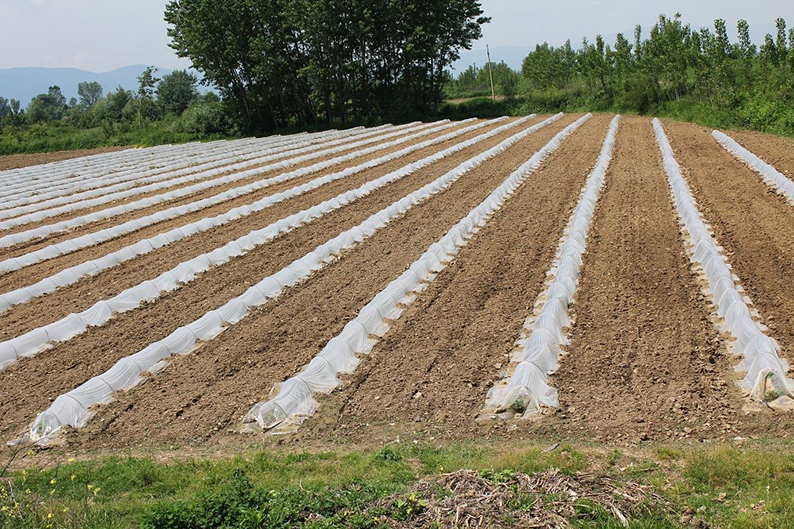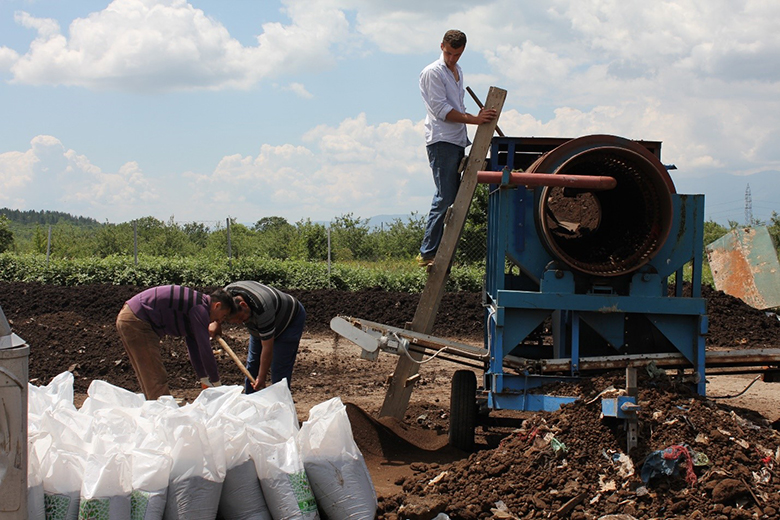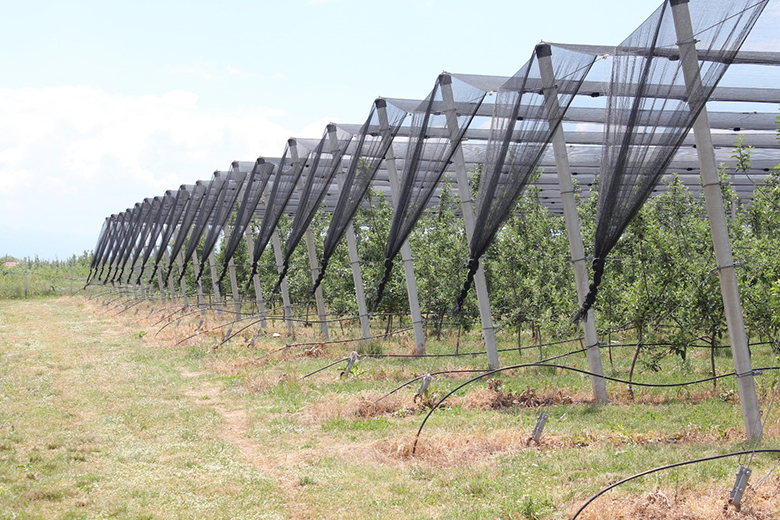The impact of climate change on agricultural and fruit crops
Agriculture is strongly exposed to the impact of climate change, primarily due to the fact that agricultural activities are carried out in the open and directly depend on climatic conditions. On the other hand, agriculture significantly emits greenhouse gases, primarily through the release of methane and nitrogen oxides, which are one of the most powerful greenhouse gases. In order to help farmers cope with climate change, the United Nations Development Program (UNDP) in recent years in partnership with the Municipality of Strumica provided support that was mainly focused on the rational use of available water resources and crop protection from risk of extreme weather events.

We are talking about the results and opportunities for sustainability of the set activities with the project specialist Igor Kostovski, who was actively involved in the implementation of these initiatives.
Interviewer: Darko Chekerovski, UNDP
The future of humanity depends on the quality of the environment. Agriculture is one of the main sectors that have an impact on the environment, but at the same time is strongly exposed to the impact of climate change, primarily because agricultural activities are mainly carried out in the open and directly depend on climatic conditions. What are the challenges to agriculture posed by climate change?
The quantity, quality, safety and availability of food are the basic needs on which the survival of mankind depends. The United Nations Development Program (UNDP) has helped to make detailed analyzes of how climate change will affect various branches of agriculture, from early crops to viticulture and crops that are planted outdoors and are not always irrigated. The production and provision of healthy food is one of the top priorities of every country. For North Macedonia, it is often emphasized that this is a country where the soil and climate provide excellent conditions for food production with excellent quality. In quantity, it can even exceed the needs of the country ten times. So it is not about any, but food production, as an economic branch that is critical to the country and with a pronounced export potential.
Unfortunately, such situations are not permanent and are subject to change, especially in the last two decades, which we are all witnessing. Serious climate change expressed through rising temperatures and decreasing rainfall and intensity, extreme weather events such as heat waves, droughts, severe storms and floods have also caused serious changes in the vegetation of crops and orchards. This further has a direct impact on the quantity, yield and quality of the crop.
But it is still a two-way process. Both pest control and more conservative land use methods have a negative effect on climate change. What are the consequences of this way of working on climate and climate change?

Agriculture participates in causing climate change with significant greenhouse gas emissions, primarily through the cultivation of certain crops, fertilizing and pest control, pesticide use, methane and nitrogen oxide emissions, which are some of the most powerful greenhouse gases. Because of this, we can conclude that the agricultural sector is one of the most exposed to the negative impacts of climate change, but this sector itself also influences them.
Faced with this, farmers are constantly trying to find the right measures to deal with the effects of climate change. Many of them felt the need to replace the crops they were growing, but even then they faced the same problems.
Where should we seek for the solution, the answer to these conditions?
The answer should be sought in direct confrontation with the problems, not bypassing them. It is necessary for the approach to mitigation and adaptation measures of the agricultural sector to be much bolder and more efficient, not only to reduce the negative effects, but also to use its strong potential to reduce the problem. For example, farmers cultivate about 50% of the land in Macedonia and use 60-80% of the fresh water in the country, while cattle breeders in barns, chicken coops, stables or farms raise a huge number of animals. Together, they use thousands of tons of toxic substances in the form of pesticides, fertilizers, and other agro-chemicals to protect plants from pests, but also to feed and maintain livestock.
For more than a decade, the United Nations Development Program has been working to help modernize and improve agricultural practices in the Prespa region, and in recent years in the Strumica region. What kind of help is this?

For many years, UNDP has provided direct support to farmers in tackling climate change, mainly focused on the rational use of available water resources and crop protection from the risk of extreme weather events. At the same time, the United Nations Development Program assists farmers, provides training with domestic and global experts on increasing yields through the application of new and innovative practices, and increasing the quality and value of yields through rigorous control and drastic reduction of chemical plant treatment. Manuals have been made according to the needs of farmers. From the beginning of these initiatives, the farmers looked suspicious, but when they saw that the trainings had results, benefits, theoretical but even more practical benefits, the program became massive and so far several hundred farmers have gone through the training.
We consider this approach to be optimal because it ensures the rational use of available resources (mostly water, whose capacity reduction in the coming decades will only further complicate the situation), but at the same time provides a clean and unpolluted environment that is essential importance for the production of healthy food, as well as for providing conditions for healthy living of the population.

-
Корисни линкови
26-01-2021 -
Справување со климатските промени и загадувањето на воздухот во градот Скопје
29-04-2018 -
Финансирање во климата
28-01-2022 -
Микронаративи
08-06-2022
{{"article.lastestPosts"|translate}}
-
Нови финансирања за унапредување на природата и биолошката разновидност на Зелената агенда за Западен Балкан
11-03-2025 -
Започна проектот за развој на 1-от и 2-от двогодишен извештај за транспарентност и 5-от национален извештај за климатски промени на С.Македонија
04-03-2025 -
Земјоделски форум за климатски промени: Се изнаоѓаат решенија за поголема климатска отпроност на заемјоделието
02-12-2024 -
Заврши COP29, центарален фокус на финасирањето за климата
02-12-2024



 Мод за знаковен јазик
Мод за знаковен јазик Говорен асистент
Говорен асистент Означи линкови
Означи линкови

 Зголеми маус
Зголеми маус